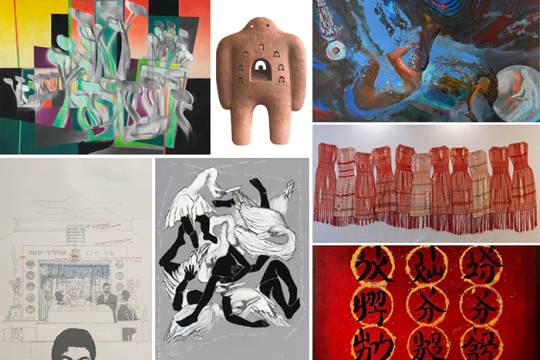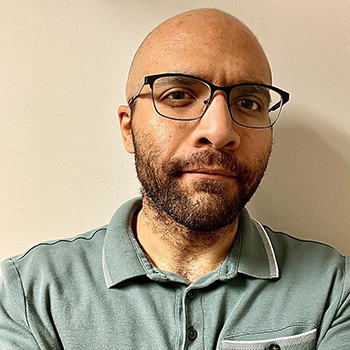
Superman embodies aspects that many of us strive to emulate: strength, compassion, honesty, and doing the right thing under all circumstances. So when James Gunn, the co-CEO of DC Studios, was announced as the writer and director of "Superman," the first movie set in the new DC Cinematic Universe (DCU), I was intrigued. Gunn is one of my favorite filmmakers; he’s hilarious, tugs at viewers’ heartstrings, and pushes genre boundaries (as proven with "Guardians of the Galaxy"). But for "Superman" to succeed, it had to be different. It had to shine a light on this popular character in a way no filmmaker ever had before.
So, did Gunn succeed? Mostly, yes. While I have personal issues with the film’s pacing and script structure, at its core, it has a lot of heart. It presents Superman as an outsider who wants to help others; someone imperfect who strives to do the right thing; a person gifted with extraordinary power put in a position to use it selflessly.
Furthermore, this story is inherently Jewish.
Superman was first introduced in 1938, in "Action Comics #1," by Jerry Siegel and Joe Shuster. They created this character not just to entertain readers, but also to send a message: even though we exist in a sometimes chaotic and overwhelming world, there are good, righteous people who can use their abilities to help others and make the world a better place. After all, Superman’s motto is “truth, justice, and a better tomorrow,” an idea that strikes at the heart of what it means to be Jewish.
Zechariah 8:16 tells us, “These are the things you are to do: Speak the truth to one another, render true and perfect justice in your gates.” In this context, truth doesn’t just mean not deceiving one another, it means being our true selves. Truth is living the lives we were meant to live, being our most authentic selves. Rendering justice means advocating for the marginalized, even at a personal cost. It means making enemies if even one life can be saved.
Rav Kook, the first Ashkenazi chief rabbi of pre-state Israel provided an insight about creating a better tomorrow that transcends generations. "Since we were ruined by unfounded hatred, and the world was ruined with us,” he asserted, “we will be rebuilt by unfounded love, and the world will be rebuilt with us." We can learn from Superman and remember that responding to hatred with love rebuilds our world into something new, beautiful, and amazing. Pirkei Avot 2:5 even tells us, "In a place where there are no worthy [people], strive to be worthy.” Superman reminds us that we must be the heroes we seek if we are to create such a world for ourselves and our descendants.
In this film, Jewish actor David Corenswet brings a nuanced human complexity to Superman: an imperfect, yet good-hearted person whose actions reflect Jewish values. Rachel Brosnahan’s Lois Lane is not relegated to merely a love interest; she challenges Superman as an equal partner in their personal relationship. Together, they stand against Nicholas Hoult’s Lex Luthor, a modern embodiment of manipulative, abusive, ultra-wealthy power. Luthor’s xenophobia, lust for control, and smear campaigns against Superman evoke clear parallels to contemporary authoritarian figures and challenge viewers to recognize these similarities.
James Gunn has been vocal about the political message of his film, particularly when it comes to our society’s treatment of immigrants and devaluation of empathy. “’Superman’ is the story of America,” Gunn said in an interview with The Times of London. “An immigrant that came from other places and populated the country, but for me it is mostly a story that says basic human kindness is a value and is something we have lost.” In Variety, James Gunn’s brother and collaborator, Sean Gunn, stated, “Yes, Superman is an immigrant, and yes, the people that we support in this country are immigrants, and if you don't like that, you're not American. People who say ‘no’ to immigrants are against the American way.”
Although neither of the Gunn brothers are Jewish, their statements echo Torah. Leviticus 19:33-34 tells us, “When strangers reside with you in your land, you shall not wrong them. The strangers who reside with you shall be to you as your citizens; you shall love each one as yourself, for you were strangers in the land of Egypt: I am Adonai your God.” Multiple verses command us to show compassion for immigrants, regardless of their “legal” status, because they, too, are created in the image of God. When we treat immigrants unfairly, strip them of due process, inhumanely imprison them, and not-so-subtly threaten to end their lives, we spit in the very face of Adonai.
So, how can we emulate Superman and become the “worthy” people Rav Kook calls us to be? By pursuing justice, loving truth, embracing compassion, and resisting tyranny. The Jewish people have endured countless xenophobic and corrupt regimes; today is no different. We must advocate for those on the margins, speak out against injustice, and challenge systems that protect the powerful at the expense of the marginalized. I encourage you to watch this new iteration of “Superman” and I hope it inspires you to become a Jewish hero yourself. As Rabbi Nachman of Breslov said, “The day you were born is the day God decided that the world could not exist without you.”
Related Posts

Wearing Strength: Jewelry as a Symbol of Jewish Resilience

Nobody Wants This, Season Two: Netflix's Awkward Conversion Class


